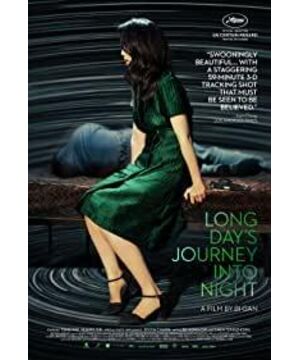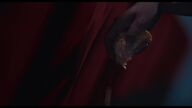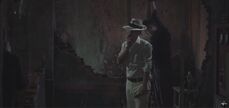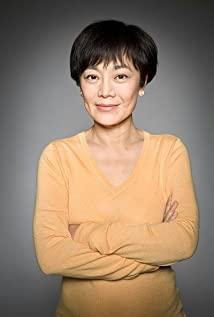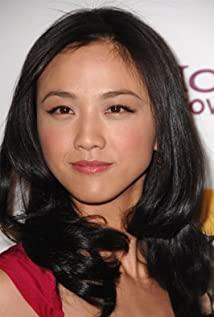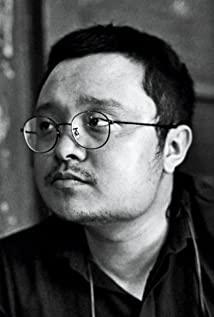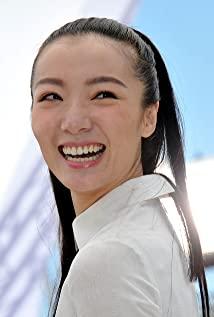The name "Last Night on Earth" comes from a collection of short stories by the famous intellectual writer Bolaño. The story unfolds from the perspective of intellectual fugitive B, wandering around and encountering various stories, mostly related to literature. . This does not seem to have anything to do with the story Bi Gan wants to tell, but you must know that Bi Gan tentatively named it "Wilderness Detective" at the beginning of the project's creation, which is also a novel by Bolaño, about a The Rise and Fall of the Realists of the Revolutionary Literary Society, the most famous of which is the novel's second part, with hundreds of interviews from a diverse range of characters that make up the protagonist's experience. But between each little story, there are often inconsistencies and mistakes. It can be seen that Bi Gan wanted to use Bolaño's works to set the tone from the very beginning, so he focused on the traveler, on the chaos of memory, and on the gray area that is not controlled by law. However, when he narrates such a story, he will eventually turn back to the style he is good at. The original position will definitely be changed by what he is good at, resulting in a similar ending to "Roadside Picnic", including the final An hour-long shot, there is no doubt that Bi Gan is repeating himself.
Why use so many long lenses? Including the single scene in the first half, all the scheduling is done in one shot. It may be to counteract the extremely fragmented narrative, and to achieve a complete unity in one scene in space, so that the narrative problem will not be particularly prominent from the perspective of the entire film. Bi Gan's long shots belong to the parade type, which is to set a viewpoint to constantly wander in the scene. If you compare the whole work to a dream, you can also regard this viewpoint as Luo Hongwu’s viewpoint in the dream. This presupposition can also explain why the narrative in the first half is so fragmented, and in the When the camera moves, there will be Luo Hongwu's narration, or scenes without Luo Hongwu. His narration will act as a perspective and continue to express his emotions, so that the whole work is filled with his existence, because it is all his dreams. In the second half, it just fell into a deeper dream state, and in terms of dream state, maybe this hour is only three minutes in the dream state, but Bi Gan intentionally extended it. The first half of the story is one standard, the second half is another, and the transition in the middle is just differentiated by 2D and 3D. What Bi Gan wants to show in the end is that everything is a dream.
The one-hour long shot that Bi Gan values most is also a parade of characters. The camera point of view followed Luo Hongwu through the cave to a town, met all kinds of people, and brought out different stories, including the story of the little white cat, the story of the red-haired woman, and the story of Kaizhen. From the perspective of the character setting alone, the story of the little white cat is placed at the entrance of the town, the story of the red-haired woman is placed at the exit of the town, and the story of Kaizhen is placed in the center of the town, about the characters. All kinds of elements scattered around, waiting for Luo Hongwu's trigger. Bi Gan once said that his long-shot design was inspired by the game at the beginning, and it is difficult not to take into account that his scheduling method is indeed set according to the process of RPG games, so he has no doubts about "the billiards must be The scene of "Going into the hole" is so persistent, because for other directors, this is a transition, and there must be another plan to remedy it, but for Bi Gan, this is a trigger point, the ball can't go into the hole , the following scenario cannot be triggered. When it was announced, it became a story of Bi Gan's serious work. In fact, it was a different way of thinking.
Did the long takes in the film hurt the story itself? Apart from the senseless heel shots and the long character parade, waiting for the characters to trigger the next scene, there is one thing that can be said to be a devastating blow: in the climax of the bridge, Luo Hongwu chanted the spell, the house began to rotate, and the two kissed. At the last moment, the camera was thrown out, and the camera went straight to the exit. The house was not rotating, everything was a static set, and the audience immediately understood this. Duan's shooting technique: the house didn't turn, it was the empty bed on which the character was sitting and the camera turning, everything was relative, and all the false constructions were broken. .
Back to the script, the reality is that after Bi Gan wrote a version of the noir script that he thought was unsatisfactory, he reset the story during filming, and then filmed each scene with difficulty according to the preset theme. Down, and then rely on editing to glue the story back together. This results in some images appearing in a particularly deliberate way, more redundant and less advanced. For example: when a person is the saddest, he eats all the apples with the core. From the lines to the visual, he keeps repeating this action, and even sets aside a single scene to give this intention, aside from the actor's performance problem, after this image Can what you want to express really carry so much space in the movie? I don't think so, so this involves why this work is technically outstanding, but the content is pale, this is a problem with the core.
Why still give full marks? Bi Gan has a kind of magic power, even if his plays fail, the lines are twisted like a student's study, and there are all kinds of meaningless and laborious actions, and the force is used in the wrong place. But the aesthetic feeling in the scene he created is spontaneous. Although there is no equal amount of content filled in, but keeping this gift from God, it will not be bad, and there is no need to worry about him. The road of growth is always It is very long. What impresses people is his talent for shaping the scene, not his lines and verses and long shots (after all, long shots are just a way to express audio-visual language). Wong Kar Wai, who is best at writing lines, also wrote TVB in his early years. , This will definitely require a lot of hard work, and I believe that he will have such an ability in the future.
View more about Long Day's Journey Into Night reviews


